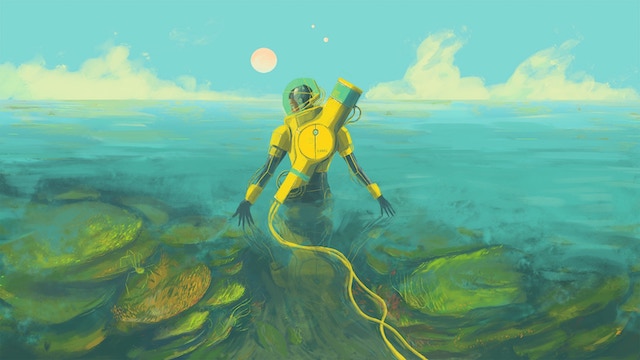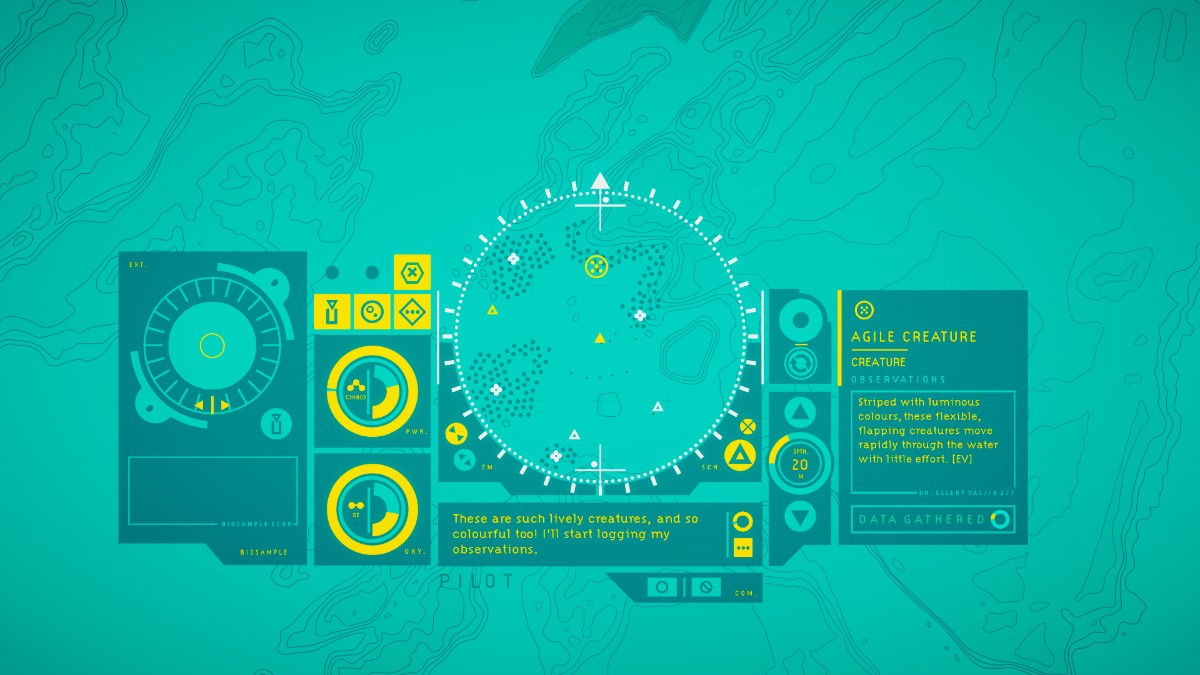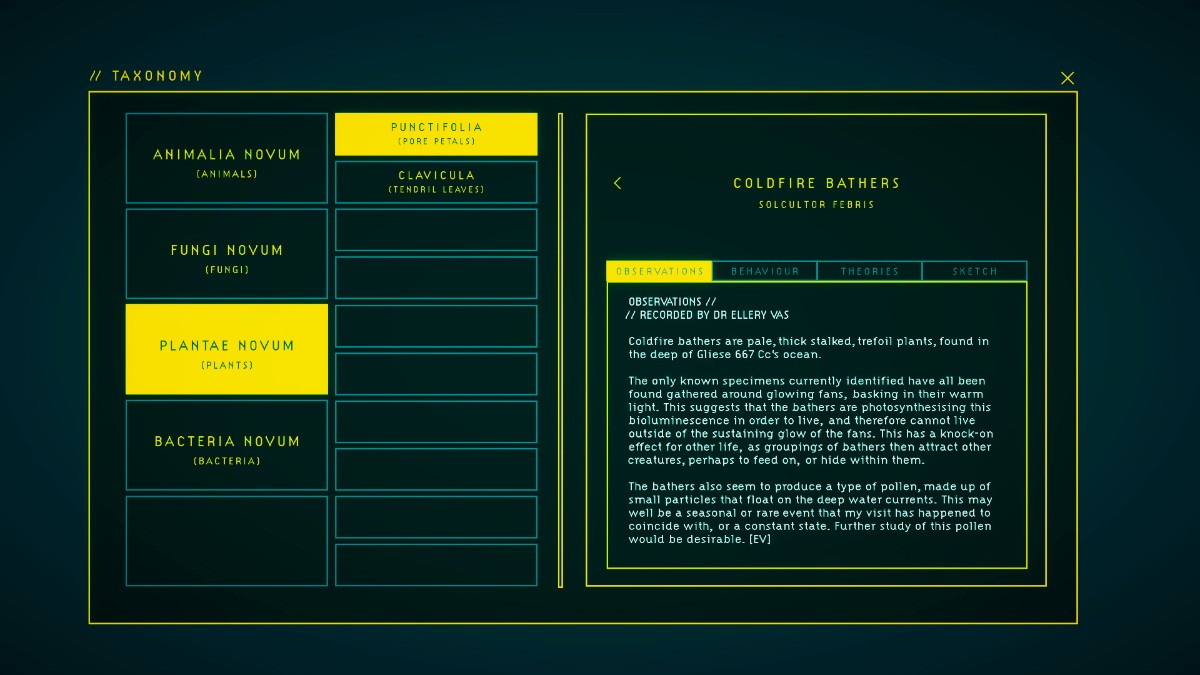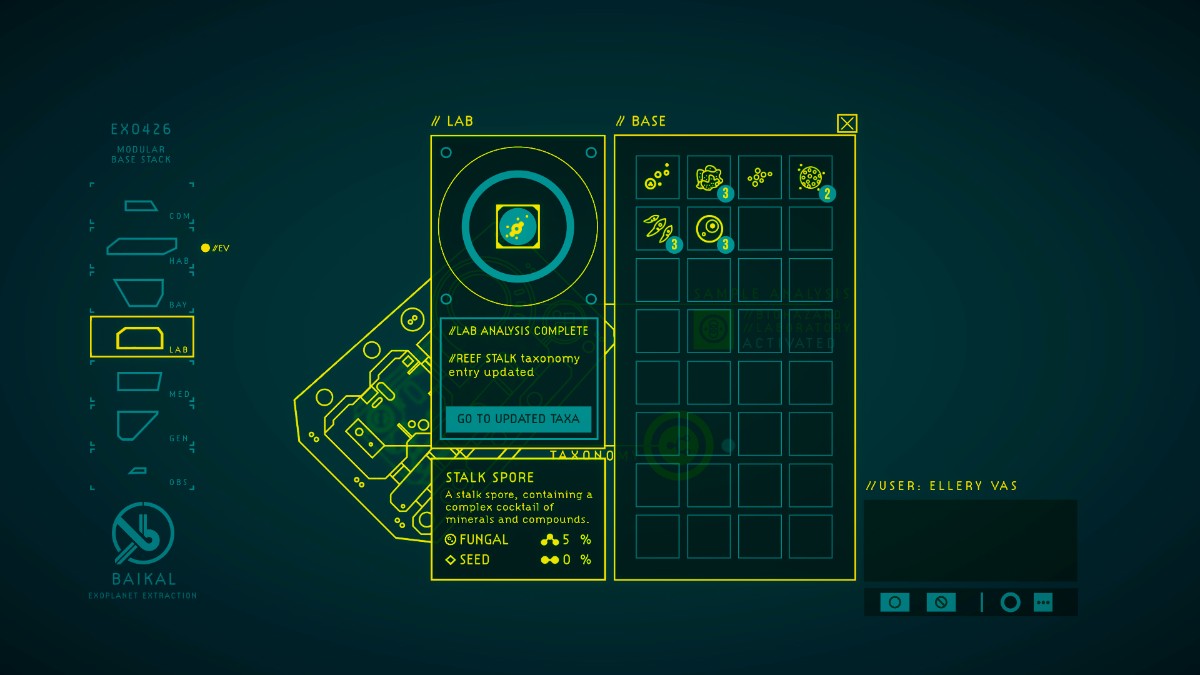When a game is advertised as telling a story about aliens and artificial intelligence, you likely have a mental image of what it looks like.
Maybe something really shooty, action-packed, and with lots of enemies to mow down. Maybe you’re the last human survivor in a world overrun by extraterrestrials.
That’s usually how it goes. But that’s not at all what In Other Waters is.
Yes, it’s heavily focused on aliens and AI, but it uses these common tropes to deliver a game the likes of which we’ve hardly seen. That’s not always meant as a good thing, but for a particular kind of player, it’s worth the dive.
In Other Waters Review: Swimming in the Deep End
These days, from games to movies to books and TV, it seems artificial intelligence is on everyone’s minds as learned machines take more and more of our life out of our own hands, and that’s evident once again with In Other Waters.
The game is about you, an AI assistant, and xenobiologist Ellery Vas exploring the ocean depths of an alien planet. It was said the planet had no lifeforms on it in a future where we seem to know several others do, but that’s quickly and clearly proven wrong once you start finding micro-organisms abound. Later on, all sorts of flora and fauna decorate your onboard encyclopedia.
An expansive set of tools at your disposal gives the game a feeling similar to No Code’s 2019 thriller, Observation, in that it’s unwaveringly committed to the act of treating you like an AI and every facet of the game constantly reminds you of that.
Dialog options are limited to simple “yes/no” replies and every element of gameplay comes down to a user interface with which you manage a bevy of tools for your underwater expedition. Everything from plotting movement trajectories for underwater traversal and measuring the depths of your travels to scanning and cataloging sealife, the entire game is essentially a point-and-click adventure disguised as a robot.
That premise has its strengths and weaknesses.
The pacing is extremely slow. It’s made to feel even slower, at least for a good while, by the atmospheric music that leaks out like a chorus of slow-motion whale songs. It’s a fantastic soundscape and perfectly suited for the game, but overall, these details also mean it can require the sort of patience many simply won’t find in themselves. This may be the slowest-moving game I’ve ever played.
It can get slower too, especially early on when you’re trying to grasp the controls and the game’s constantly shifting tasks. Move here, scan this object, swap to a second interface and use this tool, now swap to a third interface and catalog it, then swap yet again to place the organism with this bunch over there where it’ll form a cluster to slow the ocean current and solve a puzzle.
Frankly, it can be exhausting, but it does get better.
The flipside of all those buttons and dials making you feel like a pilot in a B-grade sci-fi movie is once you get to grips with them, you start to instead feel like the AI machine you’re meant to be. Swiftly and perfectly navigating through all of these menus later in the game stops being a chore and starts to come as second nature.
At times, I smirked as I caught myself on auto-pilot moving through the intricate systems doing precisely what Vas asked of me like I was programmed to do it years ago. The flow-like state it can bring you into can almost be unnerving. I nearly had to check the back of my neck for a battery compartment.
Games have always trained us to accept their control schemes as second-nature, but given the subject matter, In Other Waters joins rare company with games that turn control schemes into out-of-body experiences.
I think that’s intentional too — or maybe I just watch a lot of movies about robots — but even as the game regularly throws in new elements to slow your progress, which can frustrate with their sometimes unclear objectives, it’s super satisfying when it all clicks and you’re working your board like a hacker in a ’90s movie. They’re a testament to an unconventional game’s approach to story.
In Other Waters uses its intricate systems to dwell on themes we’ve seen in games before, even stuff you could maybe predict by watching the trailer. Yes, it’s sort of about the environment, as Vas is only scanning for resources elsewhere because we screwed up in-game Earth so badly. Yes, it’s also about the nature of AI, like SOMA and others have done so well before.
I don’t think that means In Other Waters can’t join a growing library of stories to touch on these things, and as someone deeply invested in both of those subjects, I can recommend In Other Waters more highly to people like me as they’ll get the most out of it. But no matter how much you enjoy reading about AI or concerning yourself with going green, you’ll also need a planet’s worth of patience to push through some roadblocks in this one.
In Other Waters Review — The Bottom Line
Pros
- Intricate and satisfying AI role-playing
- A timely story about some of our most pressing questions
Cons
- Extremely slow pacing, even for people who like a slow story
- Some progress-stopping puzzles that slow it all down even more
Though its systems are highly detailed and mastery of them gives way to tremendous satisfaction, I fear, for most players, the act of getting to its story ending won’t be justified by the means of navigating a series of mostly blue and yellow menus.
In Other Waters wants to tell a thoughtful story — and it does — but I wonder how many will feel compelled to experience it all. Even as all the subject matter feels custom-built for me and players like me, the snail’s pace and some unclear puzzle sections can feel like drowning at times. But with great patience, you’ll learn to swim in its waters and enjoy.
[Note: A copy of In Other Waters was provided by Fellow Traveller for the purpose of this review.]










Published: Mar 31, 2020 01:33 am